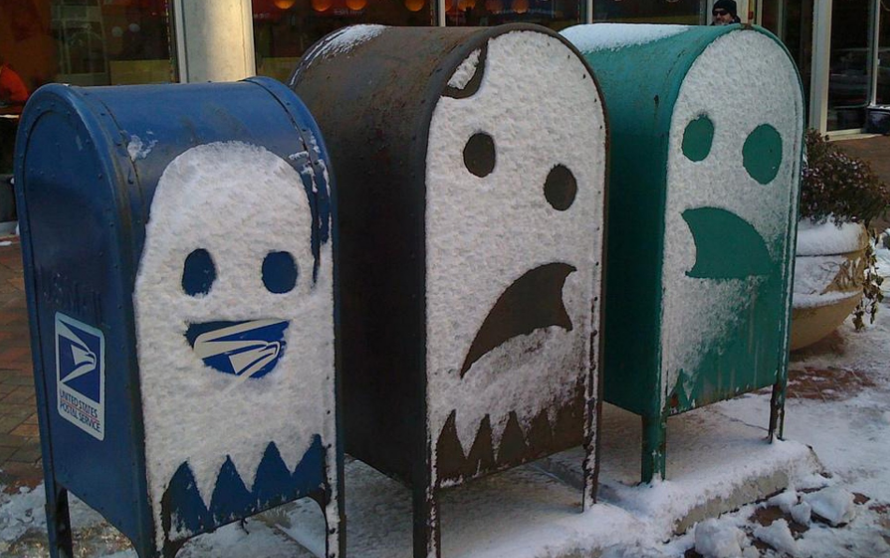The Value in Serving Notices via Certified Mail, Return Receipt Requested
In July 2012, various portions of California’s mechanic’s lien statute changed, including service and proof of service of a preliminary notice, specifically to prove service of preliminary notice via affidavit and a copy of the return receipt. (Civ. Code, former § 3097.1, subd. (a); Stats. 2010, ch. 697, § 16 [repealed])
From the appeals opinion:
“Civil Code former section 3097.1 provided that: ‘Proof that the preliminary 20-day notice required by Section 3097 was served in accordance with subdivision (f) of Section 3097 shall be made as follows: [¶] (a) If served by mail, by the proof of service affidavit described in subdivision (c) of this section accompanied either by the return receipt of certified or registered mail, or by a photocopy of the record of delivery and receipt maintained by the post office, showing the date of delivery and to whom delivered, or, in the event of nondelivery, by the returned envelope itself.’”
In March 2012, in compliance with California’s mechanic’s lien statute, a subcontractor served its preliminary notice via certified mail, with no return receipt requested.
The subcontractor eventually filed a lien for $81,857.55, because the general contractor failed to remit payment. The property owner argued the subcontractor did not comply with statutory requirements for service of the notice & the circuit court agreed, subsequently invalidating the subcontractor’s lien.
In 2016, an appeals court reinstated the lien rights for the subcontractor. Read on to learn more!
Bit of Background
Hub Construction Specialties, Inc. (Hub) furnished rebar to a private project owned by Esperanza Charities, Inc. (Esperanza). Hub served a preliminary notice via certified mail and could demonstrate, via the USPS website, that the notice was delivered & that Esperanza received the notice. BUT, Hub did not have a signed return receipt.
From the appeals opinion:
“Plaintiff ‘furnished postage to the U.S. Postal Service sufficient to serve all certified mail items and possesses a `Certified Mailer Manifest for: 3-16-12′ reflecting [the general contractor, defendant and the construction lender] as addressees and bearing an Official Stamp of the United States Postal Service.’
Plaintiff did not request, and did not pay a fee to the United States Postal Service for, a “return receipt” for the notices.
The U.S. Postal Service website tracks certified mailed items and the tracking for the certified mailed items indicates that they were all delivered. Further, [defendant] has acknowledged in verified discovery responses that it received the preliminary notice which [plaintiff] served. There is no signed return receipt.’”
In 2013, Hub filed suit to enforce its mechanic’s lien and the trial court invalidated Hub’s lien because “plaintiff ‘cannot provide sufficient proof of service by documentation of the return receipt of certified mail, [or] a photocopy of the record of delivery and receipt maintained by the post office, showing the date of delivery and to whom delivered … as required under the statute in effect at the time the effectiveness of the preliminary notice as given is sought to be established.’”
Then, in 2016, the appeals court determined Hub served the preliminary notice in compliance with the statute, and subsequently reversed the trial court’s decision.
“In short, in a case where defendant has admitted that notice was served in the statutorily prescribed manner, plaintiff need not comply with the statutory requirements for proving that notice was served in the statutorily prescribed manner.”
Takeaway & Best Practice
California statute has since changed and proof of document delivery is vital. Here’s an excerpt from current statute.
8110.
Except as otherwise provided by this part, notice by mail under this part shall be given by registered or certified mail, express mail, or overnight delivery by an express service carrier.
8118.
(b) If the notice is given by mail, the declaration shall be accompanied by one of the following:
(1) Documentation provided by the United States Postal Service showing that payment was made to mail the notice using registered or certified mail, or express mail.
(2) Documentation provided by an express service carrier showing that payment was made to send the notice using an overnight delivery service.
(3) A return receipt, delivery confirmation, signature confirmation, tracking record, or other proof of delivery or attempted delivery provided by the United States Postal Service, or a photocopy of the record of delivery and receipt maintained by the United States Postal Service, showing the date of delivery and to whom delivered, or in the event of nondelivery, by the returned envelope itself.
(4) A tracking record or other documentation provided by an express service carrier showing delivery or attempted delivery of the notice.
NCS always recommends serving preliminary notices via certified mail with return receipt requested (@ NCS, we serve notices via certified electronic return receipt). The additional cost to addon “return receipt” is significantly (an understatement) less than potential court costs & time trying to prove the document was received.
You can read the full appeals decision here: HUB CONSTRUCTION SPECIALTIES, INC. v. ESPERANZA CHARITIES, INC., Cal: Court of Appeal, 2nd Appellate Dist., 8th Div. 2016
